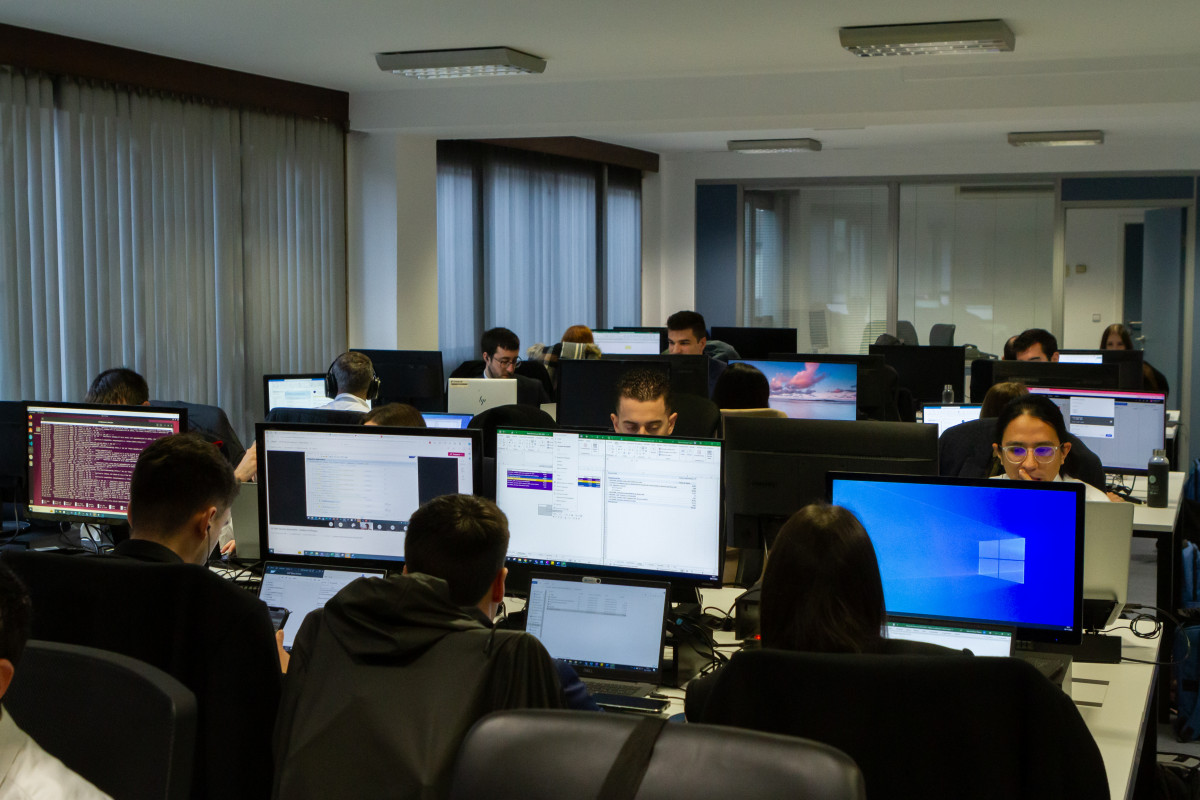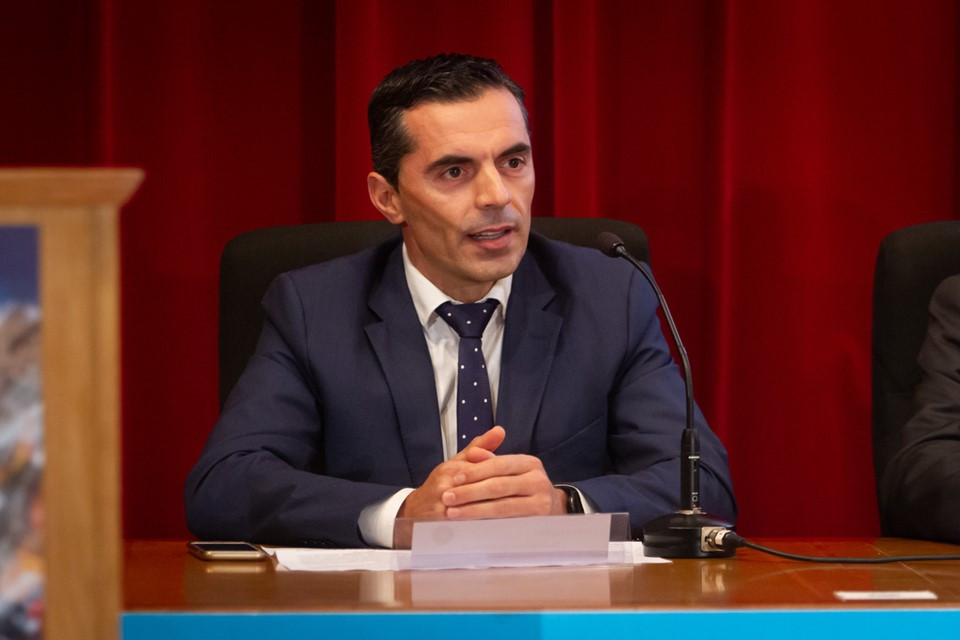Galician industry, open to new formulas for global cooperation

Two Galician companies reflect for AutoRevista how they operate in an automotive ecosystem as heterogeneous and competitive as the Galician one. Article published in AutoRevista 2.396.
The company InprOTech belongs to the Inprosec group, a company dedicated to cybersecurity in industrial environments. One of its specialties is the automotive sector, a sector for which it acts as a supplier. So much so that, since its inception, it has always been close to the existing ecosystem in Galicia with one of the projects selected for the acceleration and consolidation phases of the BFA (Business Factory Auto) program of CEAGA, a cluster with which, today, they continue to work, as explained to us by Iago Fortes Caramés, CEO & Founder InprOTech.
“The automotive sector is one of those that provides the greatest added value and has a high level of professionalization, with a high degree of awareness in cybersecurity issues. We listen to the client and advise them through cybersecurity solutions at a technical, strategic, regulatory compliance, good practice or awareness level” says Fortes Caramés.
As for how they approach the transition that makes suppliers simultaneously for both combustion and electrified vehicles, they tell us that, from the point of view of cybersecurity, this transition also involves a commitment to digitalization. “This paradigm shift has been taking place for some time, which brings with it new processes and the opening of new opportunities, but it also opens the door to new risks with more complex, connected systems, and potentially more vulnerable to failures or even intentional actions, such as cyberattacks”.
Thus, they are focusing on several aspects to improve competitiveness through innovation, digitalization, sustainability and efficiency of processes and products. “Efficiency is the key axis of the Inprosec group's Plan 23-25, and by extension InprOTech. From our point of view, continuous improvement, process efficiency and digitalization are essential for survival in such competitive and dynamic environments. From InprOTech we contribute with our InprOTech Guardian service, developed entirely in Galicia and with which we protect production lines by detecting OT assets, anomalies, vulnerability management and blocking malicious traffic, thus ensuring regulatory compliance and avoiding production stoppages due to a cyber attack or human errors that affect the integrity of information and processes", he points out.
On the other hand, in relation to how the Galician automotive ecosystem should continue to be strengthened, with cooperation frameworks such as the CEAGA cluster so that Galicia continues to opt for new automotive vehicle and component projects in the future, the founder of InprOTech explains that, just as they have defined their Master Plan, from CEAGA and with the collaboration of most of its associates, including InprOTech, the PCAM 2030 has been developed, with 10 functional areas. “The implementation of the Plan allows the automotive and mobility sector in Galicia to enhance its strategic capacity at a cooperative level, allowing it to anticipate new competitive scenarios in a proactive manner. Unity is strength, so it is essential that all of us who are part of this ecosystem work together and support the development of the sector, in a collaborative manner, favouring the competitiveness of the sector to continue being a reference in automation worldwide”. he concludes.

Critical transition
For his part, Fran Yáñez, manager of the American multinational TI Fluid Systems in Galicia, explains that collaboration, both at a regional level and within the EU framework, is essential today at a time of profound technological changes. TI Fluid Systems is dedicated to the design and manufacture of thermal management and fluid handling systems for vehicle manufacturers and, according to Yáñez, they have not had to worry excessively about the transition to the electrified vehicle. “Fortunately, our range of products (fluid conduction systems in the automobile) is necessary in both types of vehicles. But this transition will be critical for a large number of suppliers, given that electric vehicles have 60% fewer components, and many of them are also new”, he says.
Regarding the aspects they are focusing on to improve competitiveness through innovation, digitalization, sustainability and efficiency of processes and products, he explains that improving competitiveness is the only solution to compete with the emerging automotive power of China. “In this area we are training our workers in the knowledge of new technologies, and we are participating in many projects with consortiums between several companies, large, small and technological, with shared needs, challenges and solutions”, explains the manager of the multinational in Galicia.
To conclude and in relation to how the Galician automotive ecosystem should continue to be strengthened with cooperation frameworks such as CEAGA so that the region continues to opt for new projects in the future, he assures: “To continue opting for new projects for vehicles and components for the automotive industry in the future, institutional dialogue and a decisive commitment by the administration to the industry are essential. At a political level, we must decide what kind of country we want to be, and act accordingly, in an agile and forceful manner”.


Industry Live acogió, el 19 de junio, una mesa redonda sobre el hub en España con la participación de ANFAC, Gestamp, Mondragon, SERNAUTO y T-Systems.

Nissan ha anunciado que planea transferir e integrar la producción de vehículos en la planta de Oppama, situada en el distrito de Oppama, a Nissan Motor Kyushu en la prefectura de Fukuoka, como parte de su reestructuración global de la producción bajo su plan de recuperación Re:Nissan.

EQUIP AUTO París 2025 celebrará su 50º aniversario, con el patrocinio de Emmanuel Macron, presidente de la República francesa, con una edición histórica y festiva. Del 14 al 18 de octubre de 2025, en Paris Expo Porte de Versailles, la feria congregará a más de 1.400 expositores y marcas en 100.000 m² y espera la asistencia de 100.000 profesionales.

El Centro Tecnológico de la Energía (ITE) es un referente en campos de investigación claves en la actual transformación de la movilidad, como nos explica María Porcel, responsable de línea I+D de materiales para hidrógeno de ITE.

CUPRA ha renovado sus modelos Formentor, León y León Sportstourer, combinando un diseño atrevido con tecnología inteligente y de vanguardia. Las últimas novedades incluyen la avanzada iluminación Matrix LED Ultra, una mayor ayuda a la conducción gracias al asistente de tráfico cruzado delantero, y el nuevo color de carrocería Dark Void.
